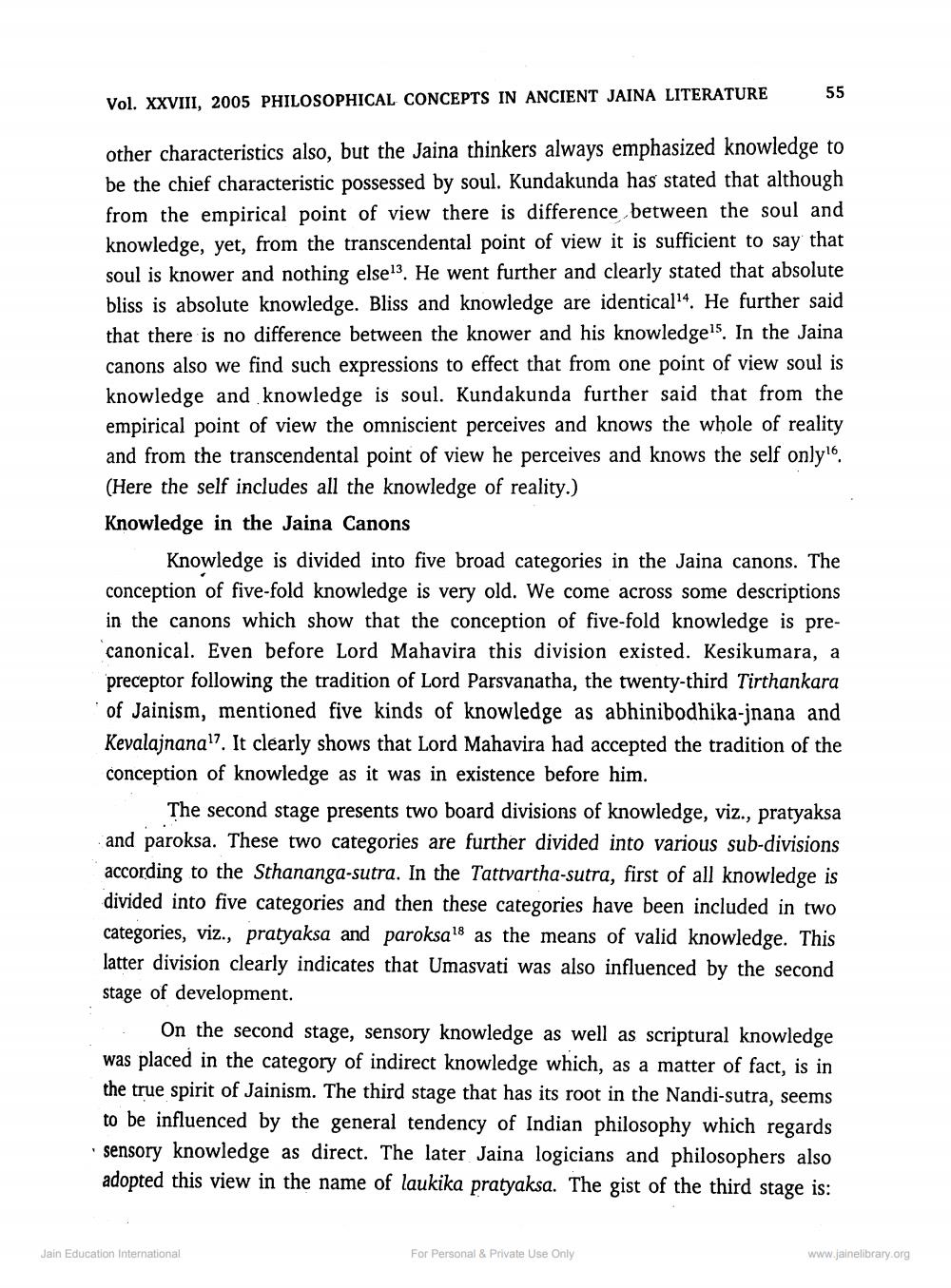________________
Vol. XXVIII, 2005 PHILOSOPHICAL CONCEPTS IN ANCIENT JAINA LITERATURE
other characteristics also, but the Jaina thinkers always emphasized knowledge to be the chief characteristic possessed by soul. Kundakunda has stated that although from the empirical point of view there is difference between the soul and knowledge, yet, from the transcendental point of view it is sufficient to say that soul is knower and nothing else13. He went further and clearly stated that absolute bliss is absolute knowledge. Bliss and knowledge are identical. He further said that there is no difference between the knower and his knowledge's. In the Jaina canons also we find such expressions to effect that from one point of view soul is knowledge and knowledge is soul. Kundakunda further said that from the empirical point of view the omniscient perceives and knows the whole of reality and from the transcendental point of view he perceives and knows the self only16. (Here the self includes all the knowledge of reality.)
Knowledge in the Jaina Canons
55
Knowledge is divided into five broad categories in the Jaina canons. The conception of five-fold knowledge is very old. We come across some descriptions in the canons which show that the conception of five-fold knowledge is precanonical. Even before Lord Mahavira this division existed. Kesikumara, a preceptor following the tradition of Lord Parsvanatha, the twenty-third Tirthankara of Jainism, mentioned five kinds of knowledge as abhinibodhika-jnana and Kevalajnana". It clearly shows that Lord Mahavira had accepted the tradition of the conception of knowledge as it was in existence before him.
The second stage presents two board divisions of knowledge, viz., pratyaksa and paroksa. These two categories are further divided into various sub-divisions according to the Sthananga-sutra. In the Tattvartha-sutra, first of all knowledge is divided into five categories and then these categories have been included in two categories, viz., pratyaksa and paroksa as the means of valid knowledge. This latter division clearly indicates that Umasvati was also influenced by the second stage of development.
On the second stage, sensory knowledge as well as scriptural knowledge was placed in the category of indirect knowledge which, as a matter of fact, is in the true spirit of Jainism. The third stage that has its root in the Nandi-sutra, seems to be influenced by the general tendency of Indian philosophy which regards ⚫ sensory knowledge as direct. The later Jaina logicians and philosophers also adopted this view in the name of laukika pratyaksa. The gist of the third stage is:
Jain Education International
For Personal & Private Use Only
www.jainelibrary.org




